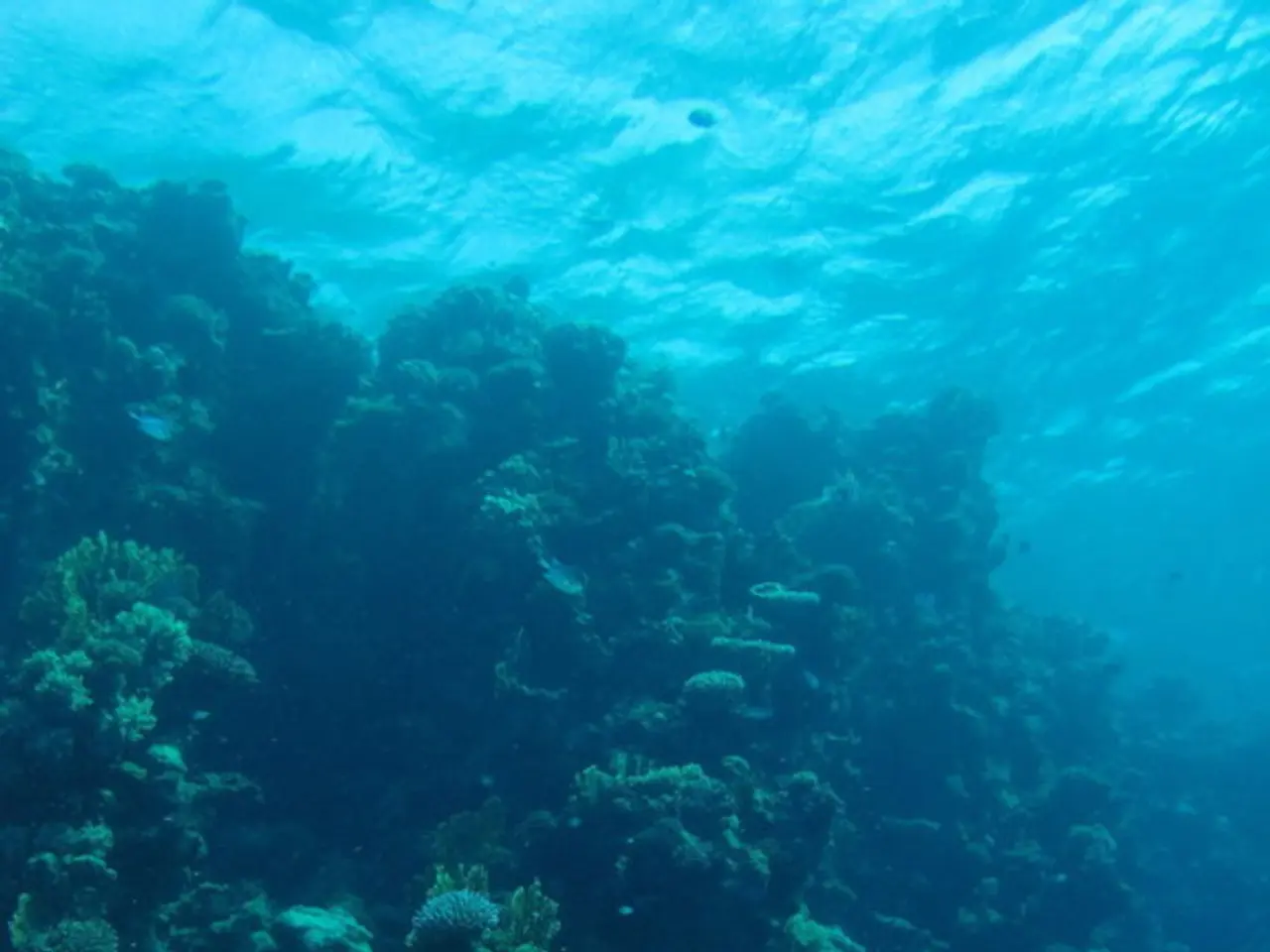Deep-sea marine life diversity under pressure due to climate emergency - Research Findings
The deep ocean, a largely unexplored realm teeming with life, is facing escalating threats from climate change, according to a new study led by researchers at the University of Queensland.
The research, published in Nature Climate Change, challenges the preconceived notion that the risk to biodiversity is greatly reduced in Earth's most under-explored habitats. The study found that even under the most optimistic greenhouse gas emissions scenario, the deep ocean will experience accelerated warming in the coming decades.
Climate velocities, the rate at which climate change is occurring, are projected to increase significantly in various ocean layers. In the mesopelagic layer, velocities are expected to increase by seven times under the emissions pathway RCP 2.6. The abyssopelagic layer will see velocities five and a half times faster than those currently seen in the surface ocean, while under RCP 8.5, the highest emissions scenario, the mesopelagic layer could experience velocities over 20 times faster than it currently witnesses.
These rapid changes pose a serious threat to deep-sea ecosystems, particularly to small mesopelagic fish from the genus Cyclothone. These fish play a significant role in supporting tuna and squid fisheries and transfer carbon to deeper layers of the ocean through respiration and excretion.
The deep ocean's biodiversity is more exposed to the climate crisis than previously believed. Over 60% of benthic foraminifera and about one-third of eukaryotic organisms remain unclassified, especially in regions like the Clarion-Clipperton Zone. This knowledge gap complicates understanding the impacts of climate crisis and seabed mining on deep-sea ecosystems.
Professor Richardson, the University of Queensland Professor and senior researcher on the study, stresses that "because of the immense size and depth of the ocean, warming already absorbed at the ocean surface will mix into deeper waters." This mixing could have devastating effects on deep-sea species, most of which have adapted to relatively stable temperatures. Even slight shifts in temperature could prove catastrophic.
Identifying areas at risk can also help highlight potential areas of climate refuge, which could play a key role in marine conservation. Addressing these challenges requires international collaboration and interdisciplinary approaches that combine environmental DNA methods, deep-sea ecology, and sustainable management to protect these fragile ecosystems amid the pressures of climate change and human activities.
Crucially, the challenges faced by the deep ocean demand international cooperation and an interdisciplinary approach. Professor Richardson suggests that in addition to combatting the climate crisis, focus also needs to be put on creating new protected areas at deep ocean depths by controlling seabed mining and deep-sea bottom fishing to preserve marine life.
The study highlights the need to focus on how biodiversity responds to climate change below the surface ocean, as most research has focused on surface waters. Marine life in the deep ocean will face escalating threats from ocean warming until the end of the century, no matter what actions are taken now. The deep ocean, a vital source of food and livelihoods for many worldwide, is under threat, and urgent action is needed to protect it.
Read also:
- Peptide YY (PYY): Exploring its Role in Appetite Suppression, Intestinal Health, and Cognitive Links
- Toddler Health: Rotavirus Signs, Origins, and Potential Complications
- Digestive issues and heart discomfort: Root causes and associated health conditions
- House Infernos: Deadly Hazards Surpassing the Flames








